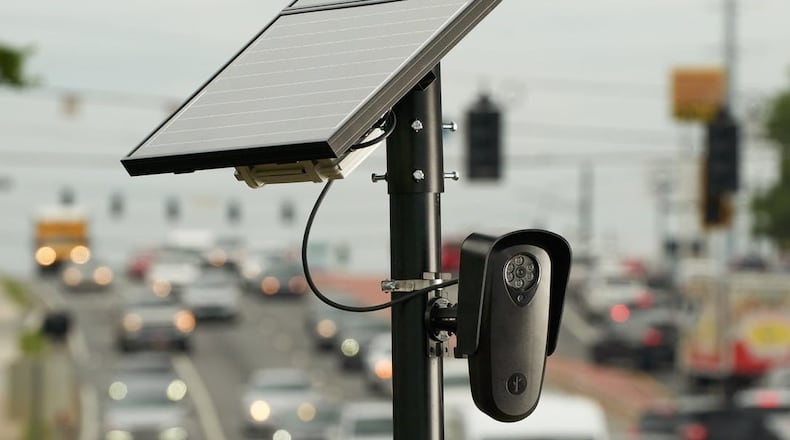Council heard a presentation by police Capt. Michael McCutchan and from police Chief Jeff Mitchell during a work session. Mitchell said the city has had experience with license plate readers going back 10 to 15 years ago, but the program ended due to lack of grant funding.
“This is a ‘force multiplier’ for us,” Mitchell said. “It’s a great way to locate missing people in Lebanon and in surrounding cities.”
He said 70% of all crimes involve a vehicle. Having the cameras would help as 50% of police shifts are worked at minimum staffing levels.
The cameras with license plate readers would be deployed strategically positioned and would capture photos and license plates of vehicles coming in or out of the city going past that location, McCutchan said. He said the device can read the plate number and determine the vehicle’s color, make and type, which are searchable.
McCutchan said if police here or elsewhere has a vehicle they are looking for, the vehicle identification information, plate number, color, make, model of the vehicle can also flag wanted vehicles coming in or out of Lebanon and alert local police that wanted vehicle is in the city.
The equipment does not utilize any facial recognition programs, he said. The camera system is not used for traffic enforcement; data is not stored beyond 30 days; the information is not tied to personally identifiable information; is not connected to a third party database; and is not predictive policing. The cloud-based system is encrypted from end to end.
In the 2023 budget, the police division included $50,000 in funding for Flock cameras, McCutchan said. He said each camera can cost about $3,000 for full camera installations. The stationary cameras can be mounted on existing utility poles or separate poles. The cameras can be electric or solar powered and connected with cellular data, he said.
If council approves, they cameras would be installed over two years and would be deployed at key streets and roads around the community. The Flock cameras would also be coordinated with the network of downtown cameras as an additional layer of safety.
“We looked at Flock cameras a few years ago and in the past few months, we’ve had some more discussions with them,” he said.
McCutchan said Flock license plate readers were on two cruisers but that was not effective because one of those cruisers may be out of service or in a different part of Lebanon.
He said Flock analysts working with Lebanon police have identified 30 locations to deploy the cameras. McCutchan said Flock cameras are being used in more than 2,000 U.S. cities and that there are more than 500 cameras with sharing capabilities in southwest Ohio, and 88 in Warren County communities.
Utilizing the cameras include the Warren County Sheriff’s Office, Springboro, Franklin, Hamilton Twp., Mason. Also utilizing these cameras are Beavercreek, Centerville, Kettering, Miami Twp., Vandalia, Dayton, Tipp City, and West Carrollton.
Mitchell and McCutchan said an investigative reason is required for every search and the Division of Police will do a quarterly audit of system use.
Lebanon council members expressed their support to help police in their efforts to protect the community.
Mayor Mark Messer said when the city installed the downtown cameras, he was told that license plate readers would be next followed by facial recognition.
“Some people feel this is very invasive (to their personal privacy),” Messer said.
Councilmen Breighton Smith and Matt Sellers said they wanted more time to think about taking this next step.
Smith asked where does this end, where is the balance with privacy, and what is enough? Seller said he wanted more time to determine the balance between citizen privacy with protecting the city.
Council will discuss the issue further at an upcoming meeting and asked for more information about the cameras.
About the Author

